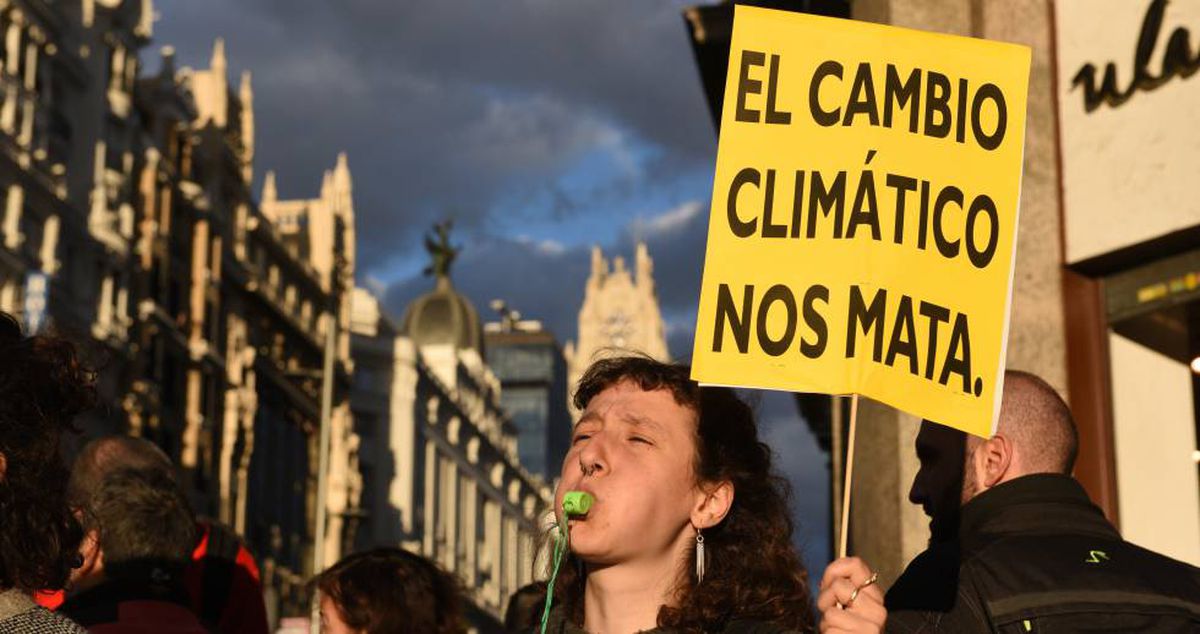The seriousness of climate change has gone from enjoying some consensus to once again becoming a political issue.
Half of the Spanish population considers the climate crisis a very serious problem, according to the 2022 Social Perception of Science and Technology survey, but this is 10 points less than in the 2020 edition of the same study.
It is a piece of information that goes against international trends and that also fits badly with the increase in popular interest in science and the perception of being more informed about these matters.
Pablo Cabrera Álvarez, co-author of the study, believes that the current political moment and the ideological dispute are key to explaining this notable drop in just two years.
“We have heard some political leaders question climate change.
They have a specific position.
We are talking about the extreme right, ”he summarized during the presentation of the survey, carried out with a robust sample of 6,000 people for the Spanish Foundation for Science and Technology (FECYT).
Although most Spaniards consider climate change to be a serious (27%) or very serious (50%) problem, the drop of 10 percentage points is cause for alarm.
Mainly, due to the attributions given to global warming.
According to the researchers, those who judge climate change as a less serious problem, even if they are in the minority, are more likely to say that nature has played a more important role than human action.
“That is the point at which mistrust goes further and passes a limit that begins to be dangerous.
If we understand that climate change is a challenge that we have to face now, the fact that there are social groups that actively try to delegitimize this line of action can have consequences," says Cabrera,
Celia Díaz Catalán, a professor at the Complutense University of Madrid and also a co-author of the report, adds that decision-making in the field of public policy also influences this trend.
As she explains, "it is not the same" to be concerned about climate change, simply as an idea, than to have to carry out effective changes, such as paying higher taxes for energy and stopping driving through the centers of the cities.
"Ideology is decisive in the face of that type of thinking," she says.
The data also shows a slight growth in adherence to conspiracy ideas.
Whereas in 2020 24% of the population totally or fairly agreed that "pharmaceutical companies hide the dangers of vaccines", in 2022 this percentage reaches 30%.
In addition, 17% of the sample somewhat or strongly agree with the mistaken statement that humanity "has not reached the Moon."
However, the researchers maintain that denialism and ignorance must be distinguished.
“It is not a piece of information that we take into account as unique, but rather we carry out a battery of indicators to calculate who would actually have that mentality of denial”, explains Díaz Catalán.
On the other hand, the results also show positive points: 64% of the population believes that the benefits of science outweigh the harm, a perception that is the most positive in the series after overcoming the decline registered in 2020 (46%).
Regarding popular interest, activities such as visiting science and technology museums (31%) or attending scientific dissemination activities (18%) have had a large increase compared to 2020, when the figures were 13% and 10% respectively. .
In addition, 6 in 10 people stated that they had talked about science with friends and family, or watched science-related television or radio programs at least once in the last year.
On the internet and by video
It was already a trend, but for the first time in this survey, which has been carried out every two years since 2002, the Internet has surpassed television when it comes to the preferred channel for the consumption of scientific information.
71% of Spaniards search for scientific information online and prefer it in audiovisual format.
Videos from platforms such as YouTube and Twitch have surpassed social networks such as Facebook and Instagram in the distribution of information (68% and 64%, respectively).
On the one hand, this is a positive fact because with the Internet information reaches further and to a greater number of people.
But the misgivings about the quality control of the information disclosed, mainly on video, are also increasing, since it is a difficult format to verify.
The population also returns to Wikipedia as a source of scientific information, after a decrease from 52% to 37% between 2018 and 2020, there has been a rebound to 51% in 2022.
You can follow
MATERIA
on
,
and
, or sign up here to receive
our weekly newsletter
.

